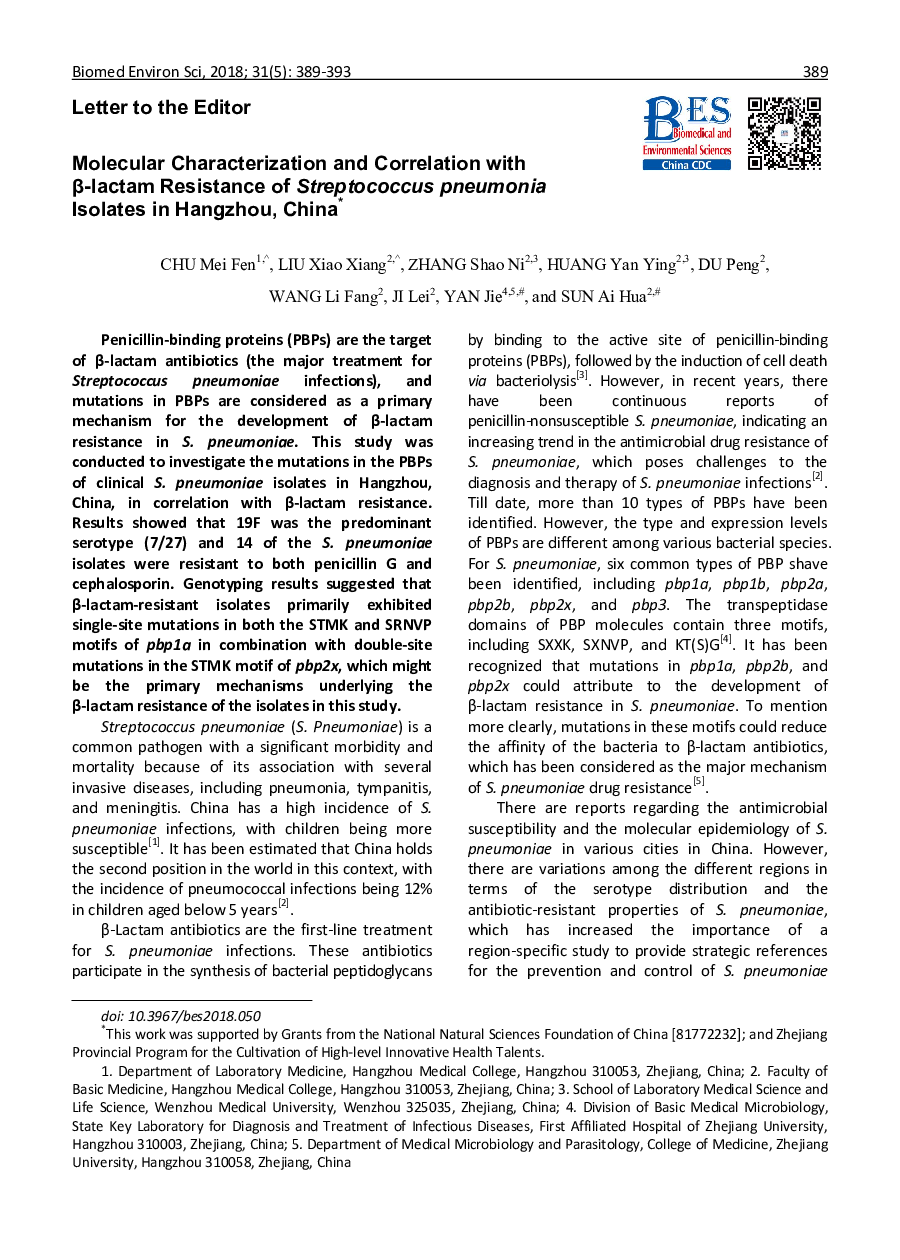| Article ID | Journal | Published Year | Pages | File Type |
|---|---|---|---|---|
| 8817423 | Biomedical and Environmental Sciences | 2018 | 5 Pages |
Abstract
Penicillin-binding proteins (PBPs) are the target of β-lactam antibiotics (the major treatment for Streptococcus pneumoniae infections), and mutations in PBPs are considered as a primary mechanism for the development of β-lactam resistance in S. pneumoniae. This study was conducted to investigate the mutations in the PBPs of clinical S. pneumoniae isolates in Hangzhou, China, in correlation with β-lactam resistance. Results showed that 19F was the predominant serotype (7/27) and 14 of the S. pneumoniae isolates were resistant to both penicillin G and cephalosporin. Genotyping results suggested that β-lactam-resistant isolates primarily exhibited single-site mutations in both the STMK and SRNVP motifs of pbp1a in combination with double-site mutations in the STMK motif of pbp2x, which might be the primary mechanisms underlying the β-lactam resistance of the isolates in this study.
Related Topics
Health Sciences
Medicine and Dentistry
Public Health and Health Policy
Authors
Mei Fen CHU, Xiao Xiang LIU, Shao Ni ZHANG, Yan Ying HUANG, Peng DU, Li Fang WANG, Lei JI, Jie YAN, Ai Hua SUN,
